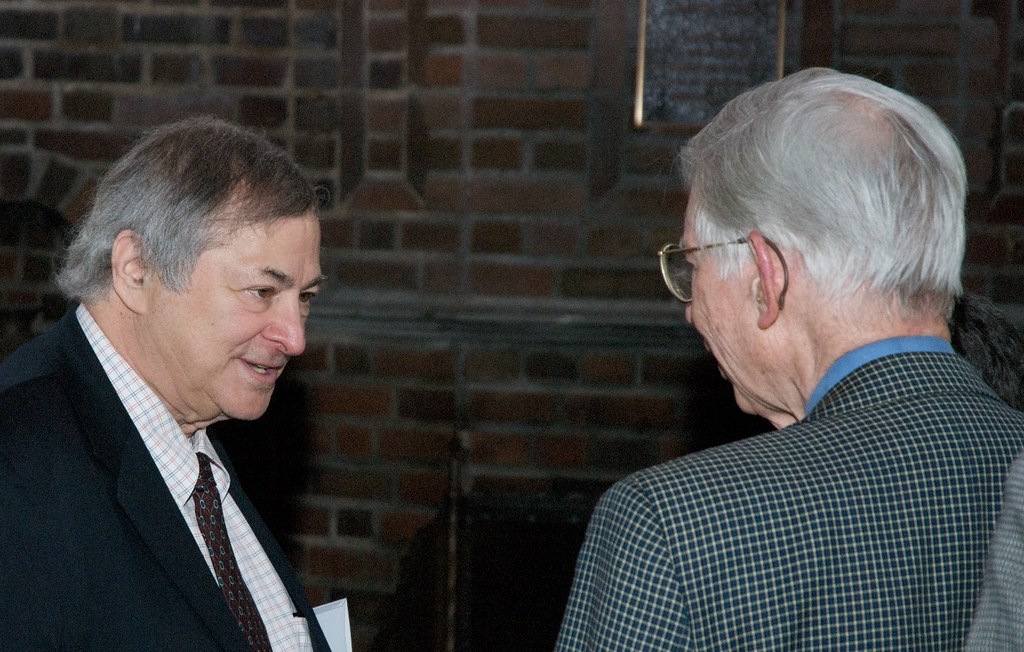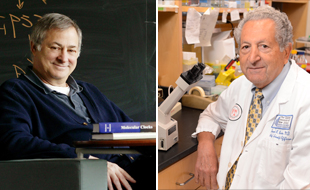Arnold J. Levine
Jay Arnold Levine ( born July 30, 1939 in Brooklyn, New York) is an American biologist and cancer researcher.
Life
Levine acquired in 1961 at Harpur College, Binghamton University in Binghamton, New York, a Bachelor's in Biology. In 1966, he earned with a thesis on " the role of the structural proteins of adenoviruses in ending the biosynthesis of the host cell" at the University of Pennsylvania in Philadelphia, Pennsylvania, a Ph.D. in microbiology. As a postdoctoral fellow Levine went to the California Institute of Technology (Caltech ) and worked on the DNA replication of phi X 174, a bacteriophage.
Then Levine received a first junior professorship ( Assistant Professor in 1968, Associate Professor 1973) for biochemistry at Princeton University in Princeton, New Jersey, and in 1976 a full professorship. In 1979 he became Professor of Microbiology and Director of the Institute at Stony Brook University in Stony Brook, New York. In 1984, Levine Professor of Molecular Biology and Director of the Institute returned to Princeton University. In 1998 he went as professor of tumor biology ( " Cancer Biology " ) to the Rockefeller University in New York City; at the same time he was president of the university. Since 2003, Levine is a professor of biochemistry and pediatrics at the Robert Wood Johnson Medical School ( a university in the Association of the University of Medicine and Dentistry of New Jersey) in Piscataway or New Brunswick, both in New Jersey.
Since 2003, Levine is also the Institute for Advanced Study in Princeton, New Jersey operates a well-known private research organization - first as a visiting professor since 2004 as a full professor. He stands there in front of the Simons Center for Systems Biology.
Levine is married and has two daughters.
Work
Levine is one of the researchers who have made significant contributions to the clarification of the significance of p53. The p53 protein plays an important role in cell division, as an important tumor suppressor and possibly in aging processes. Levine was able to show that p53 is able to prevent the funded oncogene transformation of healthy cells into cancer cells. His works are fundamental to the understanding of oncogenesis ( cancer ) and opened up new possibilities for the prevention, detection and treatment of cancer.
Other merits Levine lie in AIDS research. In 1996, he stood before a panel of experts that was convened for control of the U.S. federal research funding.










